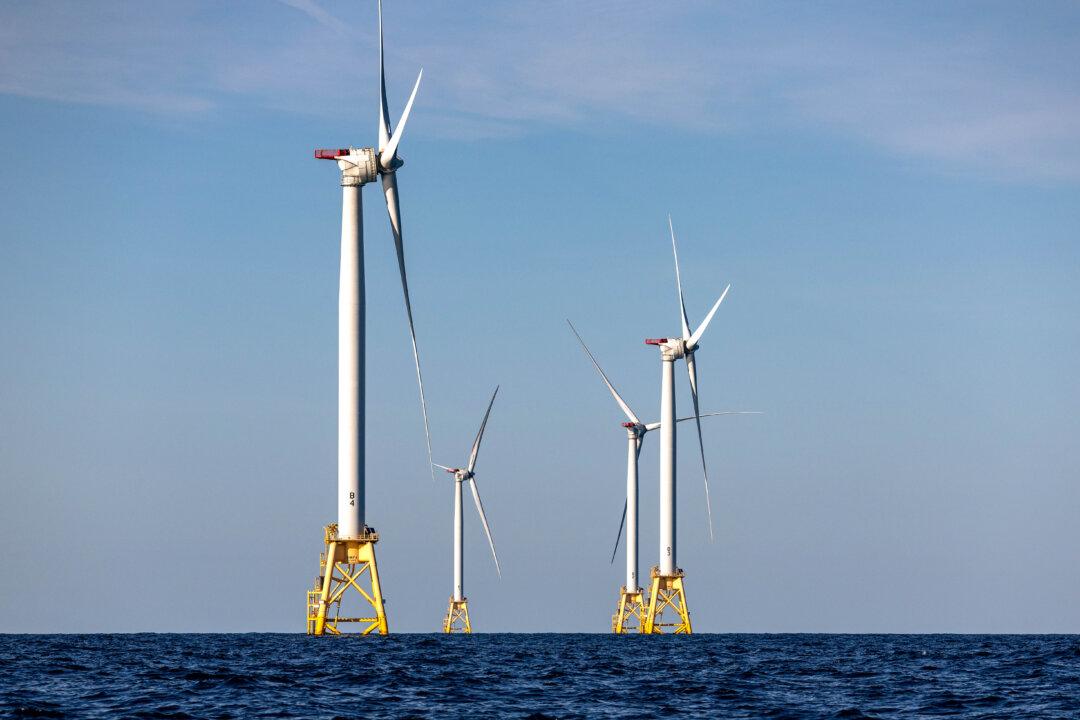Portions of Louisiana’s Gulf Coast have been sold off to two foreign companies for the development of offshore wind turbine farms.
Gov. John Bel Edwards, a Democrat, and the state Department of Natural Resources Secretary Tom Harris both announced that the Mineral and Energy Board approved granting 60,000 acres off the coast of Cameron Parish to the Danish firm Vestas, as well as 6,162 acres off the coast of Terrebonne and Lafourche parishes to the Japanese company Diamond Offshore Wind (DOW), owned by Mitsubishi.





